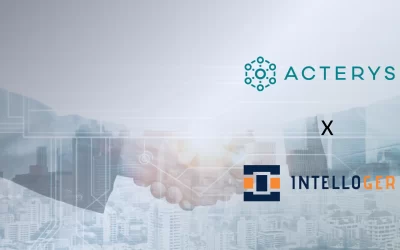The realm of artificial intelligence (AI) has witnessed a remarkable surge in the capabilities of large language models (LLMs). These sophisticated AI systems, trained on massive amounts of text data, can generate human-quality text, translate languages, and even engage in creative writing. As LLMs continue to permeate various industries, the need for effective management of their development and deployment has emerged, giving rise to the field of LLM operations (LLMOPS).
Understanding Large Language Models (LLMs)
LLMs are neural networks that have been trained on vast amounts of text data, enabling them to process and generate language in a manner that closely resembles human communication. They can perform a range of tasks, including:
- Text generation: LLMs can produce human-quality text, including creative writing, marketing material, and even code.
- Machine translation: LLMs can translate text from one language to another with greater accuracy and fluency than traditional machine translation methods.
- Question answering: LLMs can access and process information from the real world through Google Search and keep their response consistent with search results.
- Summarization: LLMs can condense lengthy pieces of text into concise summaries, capturing the key points and essential information.
Emerging Field of LLMOPS: Managing the LLM Lifecycle
LLMOPS, or Large Language Model Operations, encompasses the practices and tools employed to manage the entire lifecycle of LLMs, from development and deployment to ongoing maintenance and monitoring. It aims to ensure that LLMs are developed, deployed, and used in a safe, efficient, and responsible manner.
LLMOPS encompasses a wide range of activities, including:
- Model development: This involves designing, training, and fine-tuning LLMs to achieve specific goals and performance metrics.
- Model deployment: This involves integrating LLMs into production environments, ensuring scalability and reliability.
- Model monitoring: This involves continuously monitoring the performance and behaviour of LLMs, identifying and addressing potential issues.
- Model governance: This involves establishing policies and guidelines for the responsible use of LLMs, and addressing ethical concerns and potential biases.
LLMOPS: A Critical Necessity for Organizations
As LLMs continue to gain traction in various industries, LLMOPS has become increasingly crucial for organizations. The benefits of adopting LLMOPS practices include:
- Improved model performance: LLMOPS ensures that LLMs are optimized for specific tasks and performance metrics.
- Enhanced operational efficiency: LLMOPS streamlines the development, deployment, and maintenance of LLMs, reducing time and resources.
- Mitigated risk: LLMOPS helps identify and address potential biases and ethical concerns, ensuring responsible use.
- Accelerated innovation: LLMOPS fosters a culture of continuous improvement, enabling organizations to rapidly adapt and innovate with LLMs.
Essential Skills for LLMOPS Professionals
To navigate the intricacies of LLMOPS, individuals require a combination of technical and domain-specific expertise. Key skills include:
- Machine learning and deep learning: A strong foundation in machine learning and deep learning principles is essential for understanding the development and operation of LLMs.
- Natural language processing (NLP): Expertise in NLP is crucial for comprehending the nuances of language and ensuring that LLMs generate human-quality text.
- Software engineering: Strong software engineering skills are necessary for integrating LLMs into production environments and ensuring their scalability and reliability.
- Data science: Data science expertise is essential for analyzing LLM performance, identifying potential biases, and optimizing models.
- Domain knowledge: Depending on the specific industry or application, domain knowledge is critical for understanding the context and requirements for LLM development and deployment.
LLMOPS: A Path to Unleashing the Power of LLMs
LLMOPS plays a pivotal role in harnessing the transformative potential of LLMs while mitigating potential risks and ensuring responsible AI practices. By adopting LLMOPS frameworks and cultivating the necessary skills, organizations can effectively integrate LLMs into their operations, driving innovation and achieving remarkable results in various domains.
Contact Intelloger for more information on technology insights and services.
Recent Posts
- Intelloger Partners with Cubic to Drive Digital Transformation for Banking & Financial Institutions
- Intelloger Partners with Acterys to Drive Agile Business Planning, Advanced Analytics, and Innovation
- Intelloger and AI.S2 Partner to Elevate and Streamline AI-Powered Demand Forecasting Solutions
- 6 Proven and Effective Steps to Improving the Financial Close Process with Oracle Solutions
- Top Innovative Trends Transforming Oracle Supply Chain Management (SCM) in 2025




